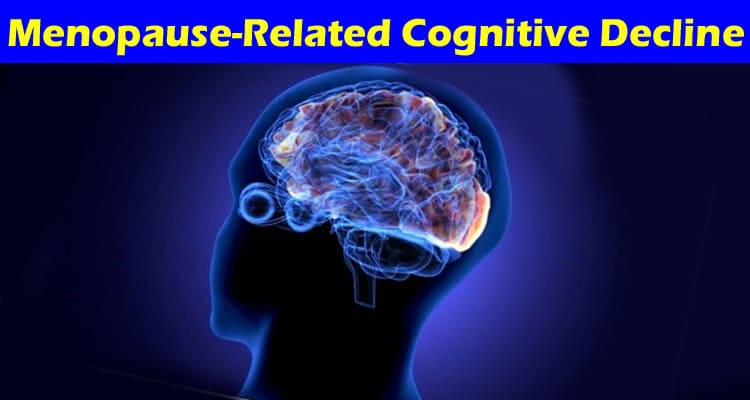While many factors can cause a woman to experience cognitive decline as she ages, menopause is one of the most common culprits. In fact, according to a recent study by researchers at the University of California, 40% of women experiencing menopause showed signs of cognitive decline.
Women tend to experience more cognitive decline than men, but many factors can worsen this process, like genetics, lifestyle choices, and even depression. However, for many women, these factors may be exacerbated by changes in hormone levels before and during menopause.
In this article, we’ll look at the latest research on menopause and cognitive decline and provide resources for learning more. Whether you’re currently experiencing menopause or are interested in protecting your brain health as you age, this blog is for you!
Exploring the Link Between Menopause and Changes in Cognitive Function
A lot of people think menopause is just hot flashes and mood swings, but it’s actually much more than that.
Menopause is a rite of passage that every woman experiences. It’s when your body undergoes a variety of changes, including hormonal fluctuations and a decrease in estrogen levels.
Researchers have recently begun to explore the link between menopause and memory problems, specifically in areas such as verbal memory and attention. Studies have shown that menopausal women may experience a decline in their ability to remember words or to pay attention to things that are going on around them.
While scientists are still working to fully understand the link between menopause, cognitive function and memory loss, it’s clear that women need more support.
It’s important to remember that women are not all alike, so menopause affects each woman differently. Some women notice a sharp decline in their cognition, while others do not. Stress and sleep quality can also affect your memory, even before menopause. To keep your brain healthy during menopause, work out regularly and eat right!
Common Cognitive Changes During Menopause
Menopause often means changes in memory, concentration, and overall cognitive functioning. One of the most common cognitive changes includes:
Difficulty With Memory and Concentration
These symptoms can be caused by fluctuating hormone levels, which affect the brain’s ability to process information. In particular, estrogen levels decline during menopause, and this can cause memory problems and difficulty concentrating.
Confusion
This is due to a drop in estrogen levels and can cause you to feel fuzzy and forgetful, especially if you’ve been using birth control pills for a long time.
A decline in Overall Cognitive Function
One of the most common cognitive changes during menopause is a decline in overall cognitive function. This means that your ability to think, remember and concentrate will be less than before your menopause began. You may find yourself feeling more forgetful than usual and struggling to stay focused on tasks that were once easy for you.
Depression
Depression is a common symptom of menopause and is one of the most serious. It can be a sign that you’re suffering from something more serious than just your hormones changing. If you’re experiencing depression during menopause, it’s important to talk to your doctor about it so they can help you get on track with treatment.
Anxiety
It’s the feeling that something bad is going to happen, and it can feel like you’re on edge all the time. You might feel like you’re constantly waiting for something bad to happen, even though nothing has happened.
Hormonal Changes
Hormonal Changes can affect your mood, energy levels and sleep patterns. You may experience hot flashes, night sweats, and vaginal dryness or itching. You might also feel more anxious than usual or start to lose interest in sex.
Mood Swings
Women who are going through menopause often experience mood swings, which can be a result of fluctuating hormone levels. These mood swings may be mild or severe, but they can significantly impact your life if you’re not prepared for them.
Memory Loss
Memory loss is one of the most common cognitive changes during menopause. It’s not just because you’re getting older–it’s also because your hormones are changing.
The brain is made up of cells called neurons, which communicate with each other using chemicals called neurotransmitters. When you hit menopause, your brain starts making less estrogen and progesterone, which means that these important chemicals aren’t being produced as much as they used to be. That means that your neurons aren’t communicating as effectively!
Stress
Stress is a common symptom of menopause, and it can manifest in a variety of ways. You might be more irritable than usual or have trouble sleeping. You might also notice that your memory used to be sharper than it used to be–you might forget where you put your keys or what someone said in a conversation.
Sleep Disturbances
You may have trouble falling or staying asleep or wake up feeling tired even though you’ve slept for hours. You might also find it hard to concentrate on simple tasks like reading or watching television.
Women can mitigate cognitive changes by staying mentally and physically active, managing stress and getting enough sleep.
Takeaway
Managing menopause-related cognitive decline is an important issue for many women as they go through this natural transition. There are several steps that women can take to help maintain their cognitive health during menopause, including staying physically active, eating a balanced diet, and getting enough quality sleep.
Additionally, research has indicated that natural menopause supplements can be beneficial in managing cognitive decline during menopause. It’s also important to address any psychological factors, such as stress and depression, that may contribute to cognitive decline. By taking a comprehensive approach to menopause-related cognitive decline, women can maintain their cognitive function and lead fulfilling lives.


